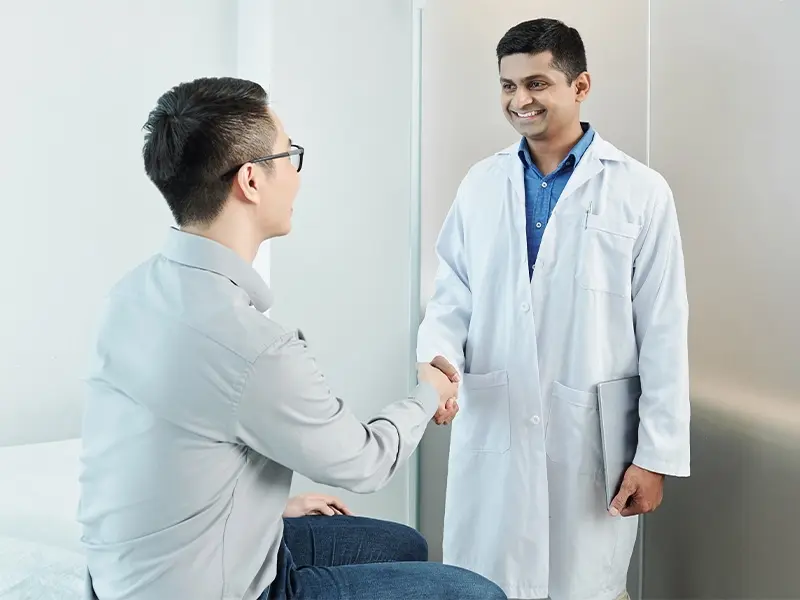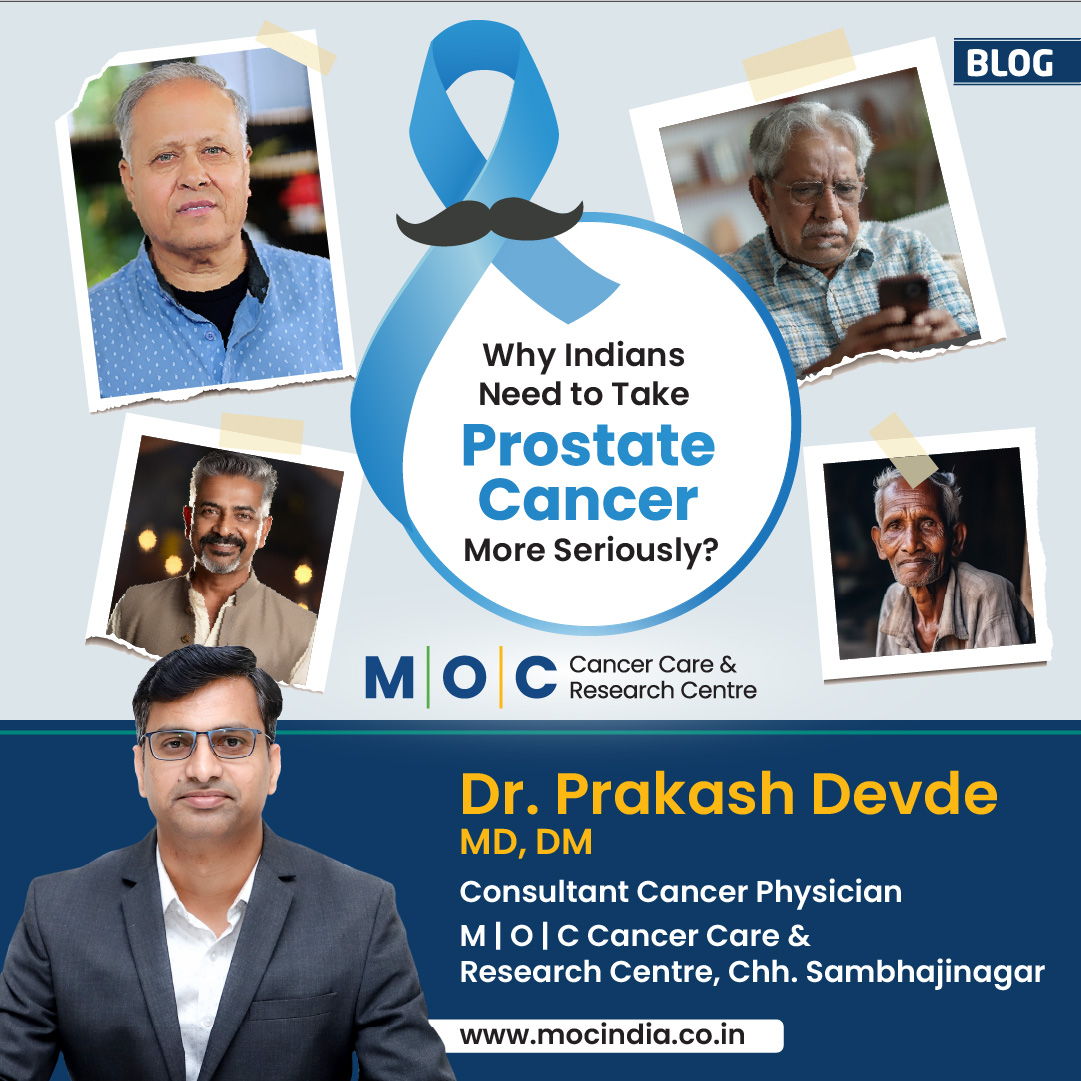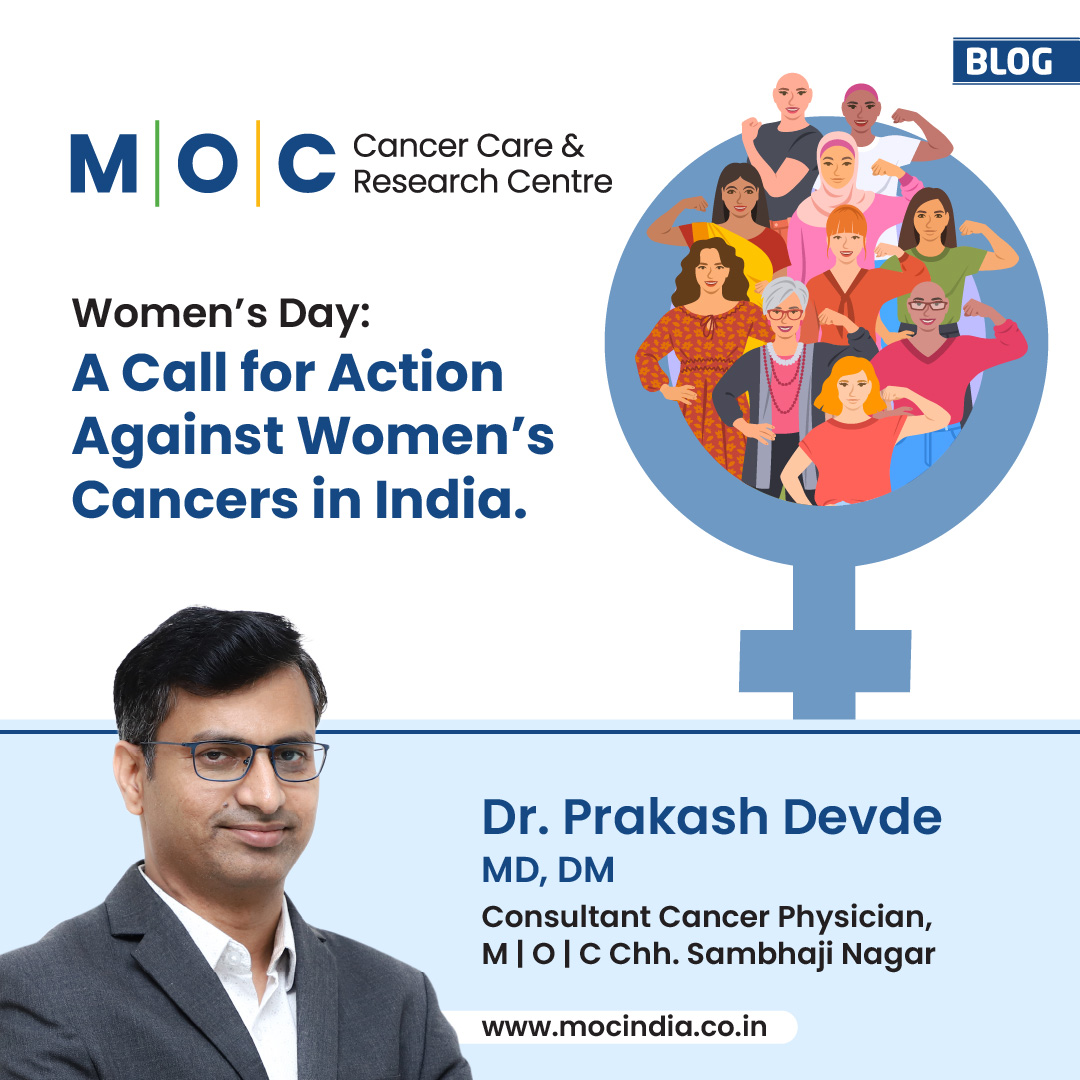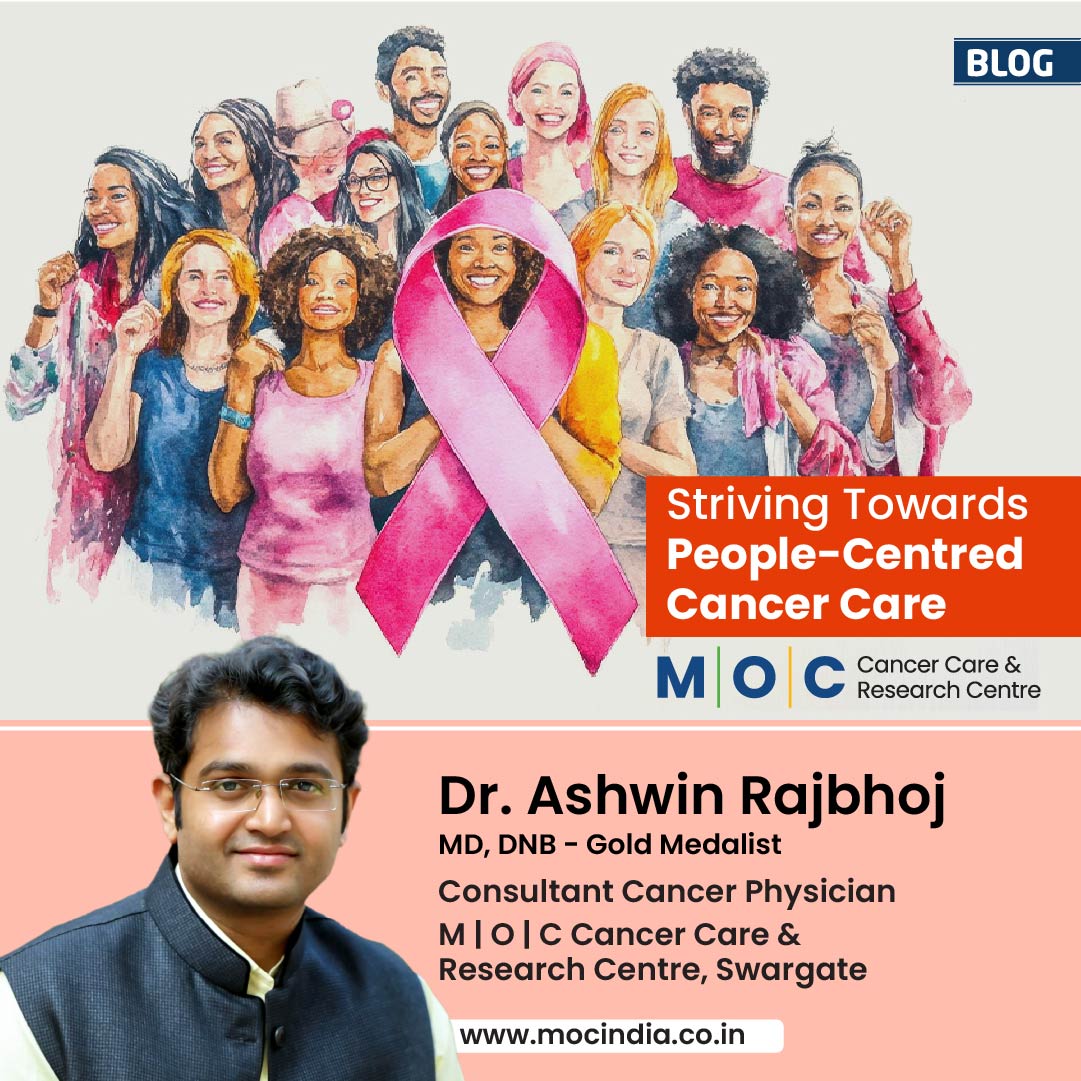What to ask, when you meet your treating cancer specialist? An oncologist’s opinion! Dr. Chandrashekhar Pethe



It is of absolute importance for cancer patients and their caretakers to know what should they ask their cancer specialist / oncologist when they meet them for the first time or during the follow-up consultation. It is the fundamental right and in the best interest of the health and well-being of the cancer patients to be prepared with all the important questions before entering the consultation chamber. The Oncologists often addresses most of the critical issues related to patient's treatment and wholesome care; however patients or their relatives should be vigilant and proactive in ensuring that all their queries and doubts are comprehensively addressed.
As we are all aware that the COVID-19 infection is posing threat to all of us today and the threat further intensifies for those having co-morbid conditions like hypertension or diabetes and for those suffering with cancer. During this crisis, the responsibilities of oncologists / cancer specialists as well as cancer patients and their caretakers increases manifold. Loads of information on COVID-19 and cancer that is easily accessible on the internet and social media offers nothing but a confusion and develops a sense of panic among cancer patients. Many times, patients are in a disillusioned state of mind to ask right questions because of the unwavering fear. I will briefly put across what should patients ask their oncologist during their consultation.
If patient is visiting the oncologist for the first time, they should ask the following.
1. How is the general physical condition of the patient? It is important for patients and caretakers to know if there is any acute / emergency symptom / health issue that needs to be addressed and sorted on priority in order to stabilize patient before diagnosing and treating cancer. It is important that patients should honestly apprise to the doctor all the antecedents like; exposure to hazardous elements, addictions, other health conditions and their ongoing treatments if any, prior diagnostic reports, prior treatments taken if any, family history of cancer etc.
2. What tests needs to be done for detailed diagnosis of cancer? Patient may be advised by their family doctor for some basic tests in order to confirm the suspicion of cancer like Sonography / X-ray / Blood Tests etc; before patient reaches the oncologist. However, the success of cancer treatment depends on how detailed the diagnosis is at a clinical and molecular level. Therefore oncologists advice appropriate additional tests like biopsy, FNAC, PET Scan, genetic and molecular tests etc to understand the extent and biology of the cancer. Patients and caretakers should know which test is ordered and why!
3. What is the state of my disease? Patient should ask doctor about the site, size and spread of the disease in their body. Oncologists always make it a point to explain to the patient about it in details.
4. What treatment shall follow? Patients and their relatives should know and ask about the initial and subsequent treatments that the patient will receive. Oncologists also explain patients the treatment modality that will be chosen for the particular patient i.e. Surgery, Chemotherapy, Immunotherapy, Radiotherapy etc. Many a times, such treatments may be used in a sequence to have the best outcomes for patients and patients should know the complete treatment plan for them. Oncologist will explain to the patient and their caretaker about the rationale of choosing a particular treatment protocol over the other; or it being the only effective protocol. They are also entitled to know and should ask about the duration of treatment, drugs, benefits of treatment, related toxicities, costs etc. Patients should also ask if there are alternative treatments in case the advised treatment can not be accessed due to cost, feasibility, logistics, sometimes tolerability by patient; or any other reason.
5. Body of evidence for chosen treatment? Patients and the caregivers should ask doctors about the body of evidence that supports doctor's choice of treatment for the patient. Oncologists always prescribe treatment interventions, be it a surgical, medical or any other modality, which are evidence based and endorsed by various guidelines. Patient has a right to know briefly about them in the language of their comfort.
6. Chances and Outcomes of Cancer? Oncologists always objectively explain the expected outcomes of the treatment given. However it is in the best interest of the patient to proactively ask about what results to expect post treatment.
7. Specific life threatening or otherwise complications expected out of treatment? Cancer patients should expect and ask if there are known, common or rare complication that can be expected while on treatment given by the treating oncologist. The average incidence of such a complication should be asked to the oncologist and seek guidance on the treatment options to take care of these complications. Patients should also know what changes in the treatment protocol their oncologist would make in order to reduce the severity of the complications.
8. Chances of Corona Infection? Patient should ask oncologist / cancer specialist about the most pertinent issue of COVID-19 infection. Coronavirus is the pressing issue of the current time; therefore a complete clarity on the risk of COVID-19 infection to the patient, before and after the cancer treatment should be consulted with the cancer specialist. Patient should also seek guidance from oncologist about the protocol to follow for taking treatment if at all patient gets infected with Coronavirus.
9. What precautions to be taken for avoiding / minimizing treatment complications / side effects? Oncologist usually explain to the patient about the list of precautions to be taken while on the treatment. Oncologists also mention the symptoms to be immediately reported to them by the patient if at all they are experienced by the patient. Patients can ask their doctor for a contact point in case there is a treatment related emergency like situation during / after the treatment.
10. What diet to follow? Patient should ask oncologist's advice on another most important aspect of cancer treatment i.e. nutrition for cancer patients. There are a certain consumables that are essential while on cancer treatment; so as some, which should be avoided. Oncologist will direct patients to cancer nutrition experts and nutritionists will make a diet plan for cancer patient.
11. Chances of developing cancer in first degree relatives? It is a known fact that some cancers are familial in nature, They have either presented through faulty genes from relative to cancer patient or it may develop cancer in relative after the patient. Oncologists are trained to advice on the familial cancers. Patients should always seek guidance from the treating oncologist on this to their satisfaction.
If patients have reached the oncologist for a follow-up consultation, the should ask following treatment related questions to them:
- How is the progress of the treatment given to them?
- What tests to be done regularly as a protocol and at what duration?
- What is the disease condition so far?
- Is the disease under control?; Improving?; Progressing?; Being Stable?
- What is the next course of action?
- When will the cancer treatment stop completely?
Remember, beyond the expertise of the treating oncologists, success of the treatment depends upon the involvement of and the co-operation by the patient and their caretakers. Those patients and their caretakers who know their scheme of treatment in detail can complete the treatment without any difficulty and expect the best outcomes. We at Mumbai Oncocare Centre follow a protocol to educate patient and their caregivers about all the aspects mentioned above in greater details. We spend reasonably long time with patients to address all their queries to their satisfaction, during the consultation.
We believe that eventually, the conviction of the patient in their doctor and the treatment given by them, brings and improves involvement of the patient and their caregivers and thereby ensures the success of treatment.
Dr. Chandrashekhar Pethe
Senior Consultant Medical Oncologist
Mumbai Oncocare Centre, Nasik
Email- drcvpethe@mocindia.co.in
Website- www.mocindia.co.in
Latest Blogs
-
![Why Indians Need to Take Prostate Cancer More Seriously? An Oncologist's Opinion]()

- 20th Mar, 2025
- Why Indians Need to Take Prostate Cancer More Seriously? An Oncologist's Opinion
-
![Women’s Day: A Call for Action Against Women’s Cancers in India.]()

- 10th Mar, 2025
- Women’s Day: A Call for Action Against Women’s Cancers in India.
-
![A Unique Perspective on Women and Cancer- A Food for Thought]()
.jpg)
- 3rd Mar, 2025
- A Unique Perspective on Women and Cancer- A Food for Thought
-
![Bridging Hope and Equity for Young Warriors this International Childhood Cancer Day]()
.jpg)
- 18th Feb, 2025
- Bridging Hope and Equity for Young Warriors this International Childhood Cancer Day
-
![World Cancer Day 2025: United by Unique, Empowered by Hope.]()

- 5th Feb, 2025
- World Cancer Day 2025: United by Unique, Empowered by Hope.
-
![Striving Towards People-Centred Cancer Care]()

- 3rd Feb, 2025
- Striving Towards People-Centred Cancer Care
Book Your Appointment








